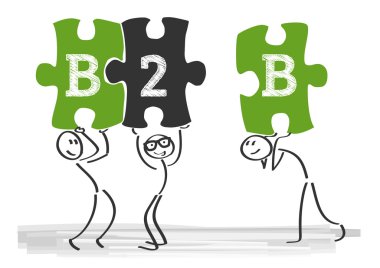In Shopify’s article, “What Is B2B Marketing? Strategies and Trends (2024),” B2B marketing is explored as a dynamic field aimed at building business relationships and driving growth. Unlike B2C marketing, which targets individual consumers, B2B marketing focuses on engaging other businesses, often involving multiple decision-makers and complex approval processes. Giants like Salesforce, Microsoft, and Oracle exemplify the intricate nature of B2B marketing, where strategies must resonate with real people within businesses, despite the corporate focus.
Two primary approaches define the B2B marketing landscape: Lead-Based Marketing and Account-Based Marketing (ABM). Lead-based marketing casts a wide net, capturing a broad audience regardless of how closely they align with a company’s target demographic. The goal is to attract as many leads as possible into the top of the funnel, though only a fraction may eventually convert to customers. This approach suits businesses aiming to reach a larger, more general market segment.
In contrast, Account-Based Marketing (ABM) takes a personalized approach, treating high-value prospects as individual markets. ABM focuses on specific target businesses, creating tailored strategies that align with each client’s unique journey, thus nurturing closer, more valuable relationships. This results in a narrower funnel where the focus is on quality over quantity, with leads that are often closer to conversion.
Both approaches offer distinct advantages depending on a company’s goals, resources, and target audience. For companies looking to capture broad interest, lead-based marketing provides reach and volume. For those focusing on high-value clients, ABM offers a more precise and relationship-focused pathway to success.
Click here to learn more about how Total Web Partners can help elevate your B2B marketing strategy with tailored, results-driven solutions.
Article with all rights reserved, courtesy of shopify.com
